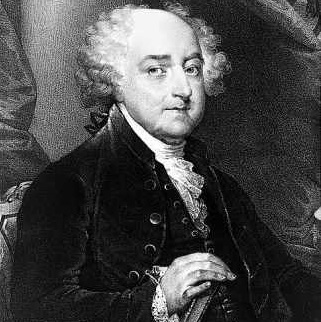
by Richard Subber | Jan 18, 2025 | American history, Book reviews, Books, Democracy, History, Human Nature, Politics, Power and inequality
what’s right is right…
Book review:
No Constitutional Right to be Ladies:
Women and the Obligations of Citizenship
by Linda K. Kerber (b1940)
New York: Hill and Wang, a division of Farrar, Strauss and Giroux, 1998
405 pages
Kerber, a well-respected historian, makes what should be an obvious point: women are citizens, just like men, and they should share all the rights and obligations of citizenship.
She disputes, in compelling detail, that women have a constitutional right “to be ladies” when that is conceived as separating them from a complete status as functioning citizens who are the constitutional equals of men (even the ones they’ve married!).
In my mind, it’s not a “feminist” thing or a “suffrage” thing. It’s a matter-of-fact thing—nothing about it doesn’t make sense.
* * * * * *
Book review. Copyright © Richard Carl Subber 2025 All rights reserved.
Oops, Columbus didn’t “discover” America
…but he got close…
–
Seeing far: Selected poems with 47 free verse and haiku poems,
and the rest of my poetry books are for sale on Amazon (paperback and Kindle)
and free in Kindle Unlimited, search Amazon for “Richard Carl Subber”
* * * * * *

by Richard Subber | Jan 12, 2025 | Book reviews, Books, Joys of reading, Poetry, Reviews of other poets
writing ingenuous truth…
Book review:
Natural Life with No Parole
by Sarah Rossiter
Georgetown, KY: Finishing Line Press, 2016
Rossiter’s poetry is worth a second read.
I think her word choices and line breaks are a bit disorganized, but nevertheless coherent.
Natural Life with No Parole is about what she sees and hears and feels, with genuine verve and ingenuous truth about the reality of human emotions.
She finds it natural to say things like “…That’s all there was, it wasn’t much, but joy is like that.”
Let the flavor of that line wrap around your tongue.
Quoted line is from “Woman in a White Truck, Driving”
* * * * * *
Book review. Copyright © Richard Carl Subber 2025 All rights reserved.
Book review: The Snow Goose
…sensual drama, eminently poetic…
by Paul Gallico
–
In other words: Poems for your eyes and ears with 64 free verse and haiku poems,
and the rest of my poetry books are for sale on Amazon (paperback and Kindle)
and free in Kindle Unlimited, search Amazon for “Richard Carl Subber”
* * * * * *

by Richard Subber | Jan 7, 2025 | American history, Book reviews, Books, Democracy, History, Politics, Revolutionary War
…John Adams,
in the thick of it…
Book review:
John Adams
by David McCullough (1933-2022)
Simon & Schuster, New York, 2001
751 pages
Maybe you’re like me. Maybe you don’t think biography is the best way to do history. David McCullough’s Pulitzer Prize-winner is a reason to change your mind a bit.
John Adams, simply, is a really good book. McCullough helps you to warm up to this American icon and to his personal experience in leading the American Revolution and the first formative years of the American republic.
Adams, our first vice president and second president, was among the few who were in the thick of it from the beginning, and he never shrank from doing what he expansively viewed as his duty to his new country.
McCullough’s prose is a delightful experience for the serious historian and for the armchair dabbler who likes a good read. From cover to cover, John Adams is a lush, genuine presentation of a man, his loved ones, his career, his commitment to do good works and his never-flagging appreciation that the object of government should be to do the people’s business and make possible
* * * * * *
Book review. Copyright © Richard Carl Subber 2025 All rights reserved.
O. Henry’s “The Gift of the Magi”
“…two foolish children…”
–
As with another eye: Poems of exactitude with 55 free verse and haiku poems,
and the rest of my poetry books are for sale on Amazon (paperback and Kindle)
and free in Kindle Unlimited, search Amazon for “Richard Carl Subber”
* * * * * *

by Richard Subber | Dec 26, 2024 | Book reviews, Books, Books Commentary, Joys of reading
Book reviewing never has been
the noblest profession.
The art of the book review is relatively young. Edgar Allan Poe wrote some reviews for Graham’s Magazine in the 1840s. The first explicitly titled book review appeared in 1861—it was a sweetheart review, in the awkwardly reserved language of the era:
“The present work has the additional recommendation of an unmistakably useful subject…”
An interesting point is that no one thought there was a need for book reviews before the middle of the 19th century. The Junto: A Group Blog on Early American History says:
“By the 1840s, improved production techniques and faster distribution networks meant that middle-class readers in America could expect convenient access to a wide range of literary materials in a variety of formats. But they also meant that readers trained to prize discernment needed more sophisticated ways to evaluate the materials passing before their eyes. This was one of the requirements that led to early attempts to define an American national literary canon.”
Book reviewers haven’t been getting a lot of respect since the early days. Poe criticized book reviews in 1846:
“We place on paper without hesitation a tissue of flatteries, to which in society we could not give utterance, for our lives, without either blushing or laughing outright.”
A century later, George Orwell had these unkind words for reviewers:
“In much more than nine cases out of ten the only objectively truthful criticism would be ‘This book is worthless’, while the truth about the reviewer’s own reaction would probably be “This book does not interest me in any way, and I would not write about it unless I were paid to.”
If you’re feeling the urge to be a full-time book reviewer,
take a moment and think about medical school.
* * * * * *
Book review. Copyright © Richard Carl Subber 2024 All rights reserved.
Book review: “The Gentle Boy”
The Puritans had a dark side…
by Nathaniel Hawthorne
–
My first name was rain: A dreamery of poems with 53 free verse and haiku poems,
and the rest of my poetry books are for sale on Amazon (paperback and Kindle)
and free in Kindle Unlimited, search Amazon for “Richard Carl Subber”
* * * * * *

by Richard Subber | Dec 21, 2024 | Book reviews, Books
strange wake-up…
Book review:
The Last White Man
by Mohsin Hamid
New York: Riverhead Books, 2022
180 pages
Hamid’s central idea is interesting: white people wake up and discover that they are brown people. Think about it. How many differences are more than skin deep?
As I started to read The Last White Man, I started to think of Coleridge talking about “the best words” and “the best words in the best order.” I started to think about other books I’ve read about beautiful words. I realized that this book isn’t full of them.
Hamid repeatedly offers massively run-on sentences to his readers. That’s not for me. It’s just too hard to want to turn the page and read more of this book.
* * * * * *
Book review. Copyright © Richard Carl Subber 2024 All rights reserved.
Book review: The Poems of Robert Frost
he hears bluebirds talking…
–
Above all: Poems of dawn and more with 73 free verse poems,
and the rest of my poetry books are for sale on Amazon (paperback and Kindle)
and free in Kindle Unlimited, search Amazon for “Richard Carl Subber”
* * * * * *

by Richard Subber | Dec 15, 2024 | Book reviews, Books, History, Power and inequality
“. . . lions led by donkeys . . .”
Book review:
The Donkeys
by Alan Clark
London: Pimlico, 1961, 1994
216 pages
Clark tells the terrible story of high-level British incompetence in leading massed armies in combat with everybody using terrifying weapons.
At the outbreak of World War I, Britain had a relatively small professional army (247,000 men). Nearly half of them were stationed overseas throughout the British Empire.
Thus, on the home island in August 1914, Britain’s generals mustered about 150,000 men to be the British Expeditionary Force (BEF) that crossed the English Channel, to join the French in fighting the German attackers.
Within three months, that half of Britain’s professional army was gone. Most of the men in the BEF were dead. Their generals must take much of the blame.
As the horrific trench warfare became the hallmark of World War I, a German general, Erich Ludendorff (1865-1937), had a disdainful conversation with a fellow officer, Carl Hoffmann (1869-1927):
Ludendorff: “The English soldiers fight like lions.”
Hoffman: “True. But don’t we know that they are lions led by donkeys.”
p.s. Britain’s total WWI casualties: 673,375 dead and missing, 1,643,469 wounded
* * * * * *
Book review. Copyright © Richard Carl Subber 2024 All rights reserved.
Book review: Shawshank Redemption
A world I do not want to know…
by Stephen King
–
Writing Rainbows: Poems for Grown-Ups with 59 free verse and haiku poems,
and the rest of my poetry books are for sale on Amazon (paperback and Kindle)
and free in Kindle Unlimited, search Amazon for “Richard Carl Subber”
* * * * * *





